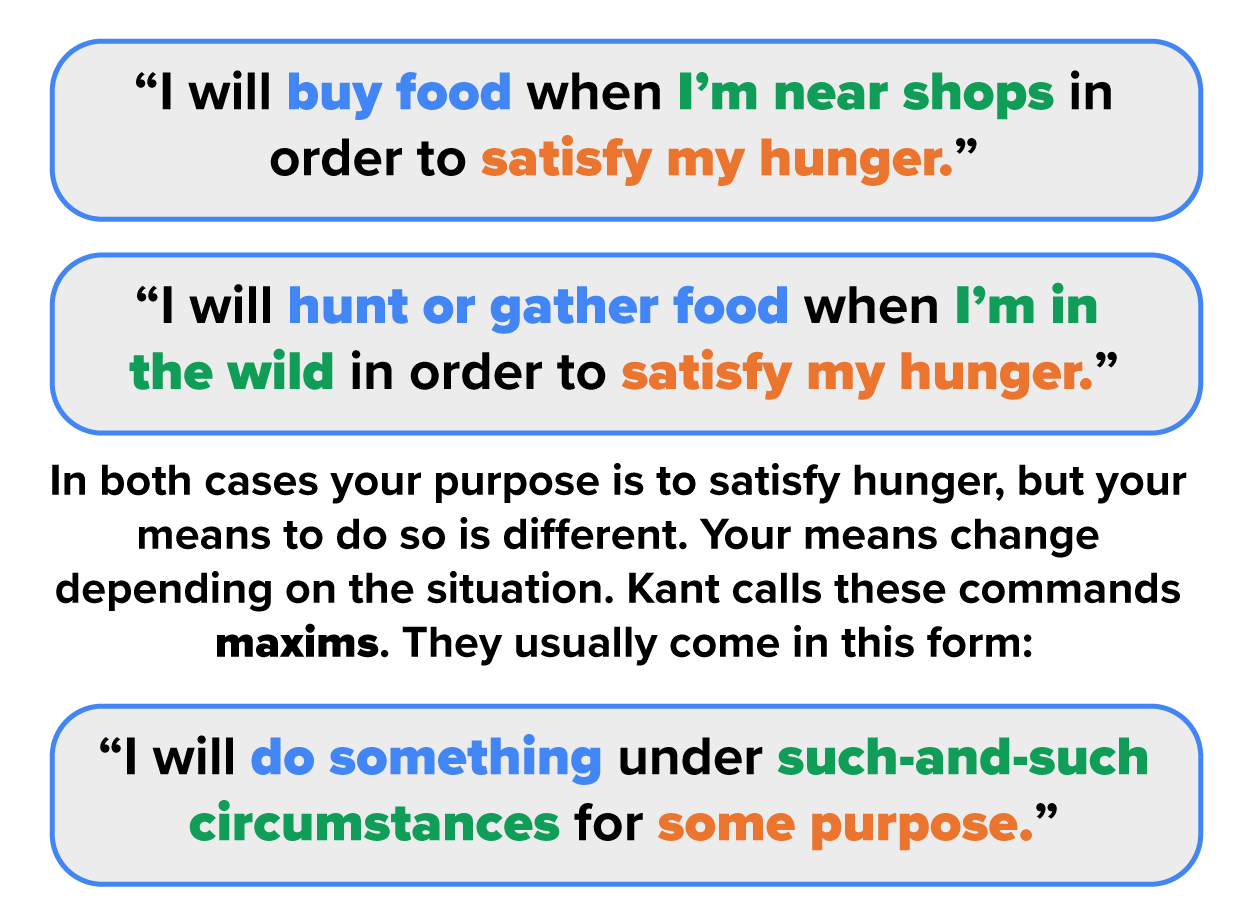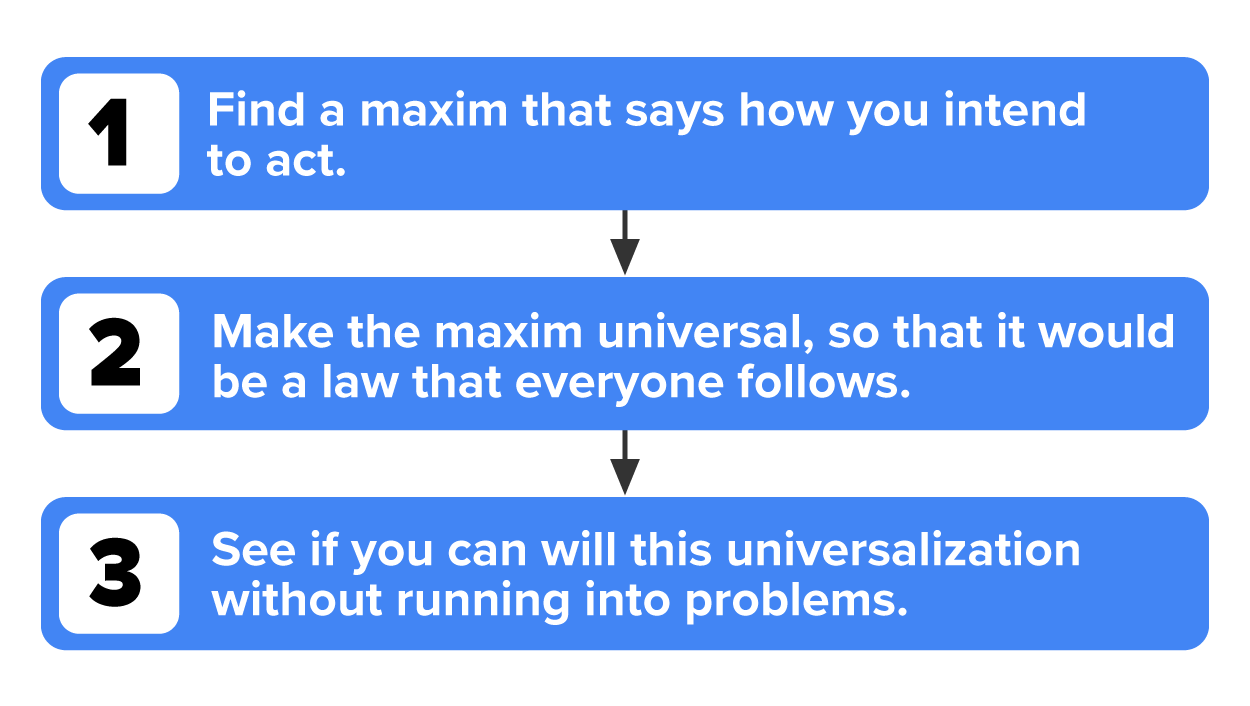Table of Contents |
To begin with, recall that Kantian deontology is a form of deontology that places absolute moral value on the agent’s intent. It doesn’t matter whether or not you succeed in bringing about what you intended.
Furthermore, Kant argued that an intention isn’t just any decision you make to do something. For Kant, intentions only move you to act in a certain way if they can be expressed as a kind of direction or command you give to yourself. Consider these examples.

If you carry out a maxim, you’ve realized it in an act. Since Kant doesn’t think morality depends on whether or not you achieve your purpose, he doesn’t evaluate the action. Instead, it’s the maxim that’s evaluated.
To evaluate a maxim, you need to see how it fits with the categorical imperative. If it violates the categorical imperative, it’s impermissible (i.e., it’s wrong to do); if it doesn’t, it’s permissible (i.e., it isn’t wrong to do).
The idea of a categorical imperative is quite difficult to grasp, while it's fairly easy to think about a law or rule that applies to specific people.
EXAMPLE
You know that a driver should follow the rules of the road, or that doctors should obey the command to help the sick (i.e., they should uphold the Hippocratic Oath).But what does a demand or imperative look like when it’s not relative to the person following it? In other words, what are the rules or laws that everyone should follow?
Kant was aware of this difficulty, so he gave different formulations of the categorical imperative to make it easier to understand. One of them is called the formulation of universal law. In short, it says you ought to act according to a maxim that everyone could use. If you want to put your maxim to the test, then you should see if it could be made universal.

The problem that you might run into is called a "contradiction" by Kant. In the next section, we will see more clearly what this means through some examples. For now, we can say that you run into a contradiction if you aim at one thing with your maxim but end up with the opposite of what you intended once the maxim is made to apply to everyone.
Let’s look at a case where you would run into a contradiction if you were to make your maxim universal. Pay attention to the fact that this test is trying to show if a maxim makes sense when it’s made universal. It’s not trying to evaluate the consequences of making a maxim universal.
IN CONTEXT
Imagine your maxim is, "When I’m losing a game of Chutes and Ladders, I will cheat to win." If this were universal, it wouldn’t just be you who could cheat when losing, but everyone.
However, if there were no rules for Chutes and Ladders, how would you know when someone has won? If everyone intends to cheat, there wouldn’t be any rules in effect anymore. Without any rules, there can’t be winners, which undermines your intention of winning by cheating.
Kant calls this undermining of your maxim a contradiction. That’s because making the maxim universal contradicts the intention of the maxim in the first place. In this case, the universalization of the maxim makes winning Chutes and Ladders impossible, and this contradicts your intention to win Chutes and Ladders through cheating.
Since you can’t make your maxim universal without contradicting yourself, it fails the universalization test. If you try to get out of this by making yourself an exception (i.e., that only you can cheat), then your maxim is no longer universal and it still fails the universalizability test. By failing the test, this maxim violates the categorical imperative. Therefore, it’s impermissible.
As long as you can universalize your maxim without a contradiction such as this, then it’s permissible.
EXAMPLE
Say your maxim is, "If I borrow your book, I will keep my promise to return it."If everyone did this, would there be any contradiction? No, because the practice of lending would still be possible since people could be confident that they would get their things back. Therefore, you could will your maxim to be universal and still successfully act according to this maxim yourself.